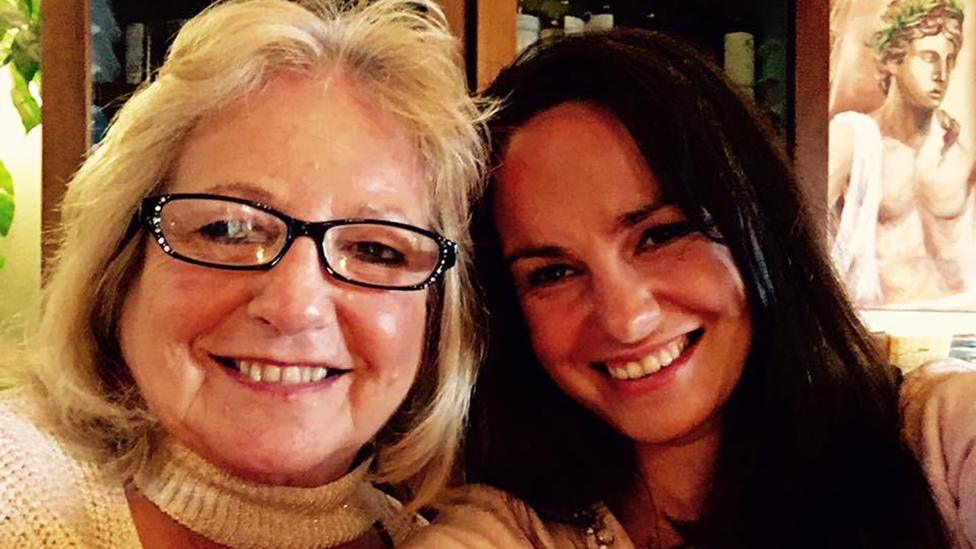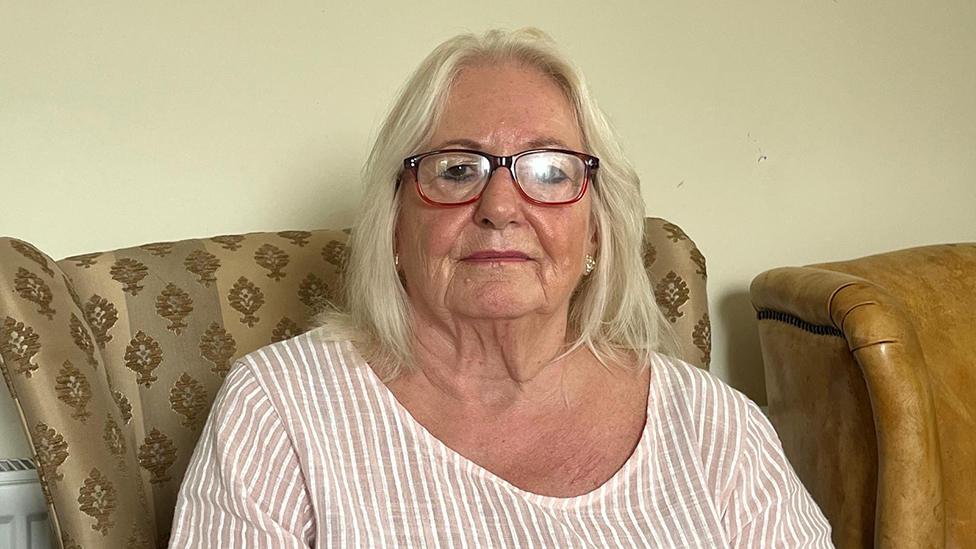Mum's call for women's football gambling cash ban after daughter's death
- Published

Kay Wadsworth described her daughter Kimberly as "charismatic, funny, loving and caring"
A woman whose daughter took her own life after running up gambling debts has called for women's football not to take money from the betting industry.
In an open letter to the FA's Women's Super League, Kay Wadsworth, from Cleckheaton, said it should not "go the same way" as the men's game.
Mrs Wadsworth's daughter, Kimberly, died in 2018, aged 32.
The FA said it had made a "clear decision" to end its relationship with gambling firms in 2017.
Describing her daughter as "charismatic, funny, loving and caring", Mrs Wadsworth said her campaign was for all families affected by gambling addiction.
"I want to do it for Kimberly because she's got no voice anymore. Well, I can be Kimberly's voice."
'Heartfelt plea'
In her letter, Mrs Wadsworth said the current Women's World Cup tournament in Australia and New Zealand gave women's football "the platform it deserves on the world stage".
"With that increased profile will rightly come more opportunities for commercial partnerships," she wrote.
"But I want to make a heartfelt plea to England's women's football not to go the same way as the men's game and be swamped with gambling partnerships."
Mrs Wadsworth's campaign has been supported by the Gambling with Lives charity, set up by Charles and Liz Ritchie from Sheffield, who lost their son Jack to gambling-related suicide in 2017.

Mrs Wadsworth has written an open letter to the Women's Super League
During the 2022-23 season, eight Premier League clubs featured gambling companies' logos on the front of players' shirts, with that sponsorship worth an estimated £60m per year.
In April, Premier League clubs agreed to withdraw gambling sponsorships from the front of matchday shirts by the end of the 2025-26 season.
However, after 2026 clubs will still be able to continue featuring gambling brands on shirt sleeves and LED advertising.
In a statement, the FA said: "We made a clear decision to end our relationship with gambling companies in 2017 and this policy is currently supported by the Women's Super League and the Women's Championship, who have no association with gambling partners.
"Clubs govern their own relationships with gambling companies and both the Women's Super League and the Women's Championship will align with the decision from the Premier League clubs to withdraw gambling sponsorship from the front of matchday shirts from the 2026-27 season."
'Strict guidelines'
A spokesperson for the Betting and Gaming Council said safer gambling messaging was regularly displayed during matches, adding: "The rate of problem gambling remains low by international standards at 0.3% of the UK's adult population."
"Betting advertising and sponsorship must comply with strict guidelines," the spokesperson said.
"The regulated betting and gaming industry provides some of the country's most popular sport with vital funding, including the English Football League and its clubs, which receives around £40m annually.
"The government has previously stated research did not establish a causal link between exposure to advertising and the development of problem gambling."
Support for addiction issues is available via the BBC Action Line..

Follow BBC Yorkshire on Facebook, external, Twitter, external and Instagram, external. Send your story ideas to yorkslincs.news@bbc.co.uk, external.
Related topics
- Published27 April 2023

- Attribution
- Published13 April 2023

- Published30 December 2022

- Published23 May 2022

- Published4 March 2022
